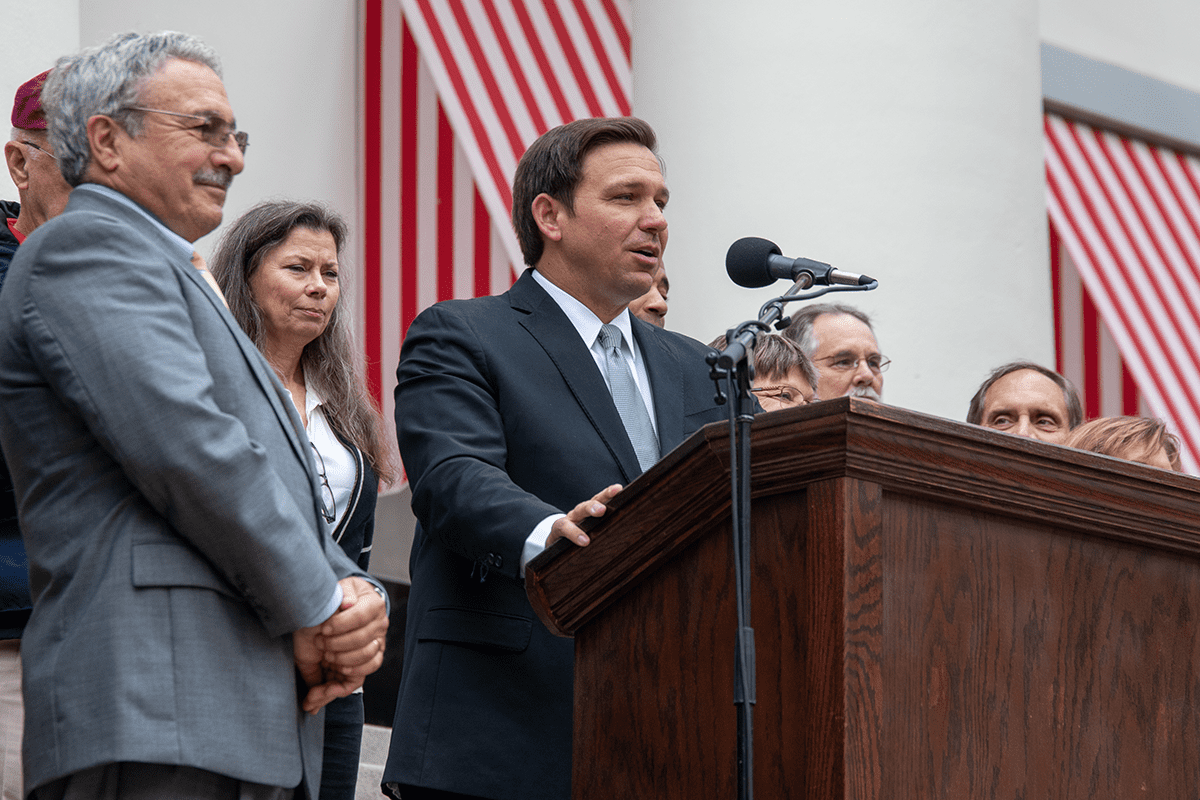Florida rejects AP African American Studies course, cites ‘political agenda’ and ‘ideological material’

TALLAHASSEE (FLV) – The Florida Department of Education rejected the College Board’s AP African American Studies, saying it lacked educational value and historical accuracy.
“As submitted, the course is a vehicle for a political agenda and leaves large, ambiguous gaps that can be filled with additional ideological material, which we will not allow,” Gov. Ron DeSantis’ Press Secretary Bryan Griffin said. “As Governor DeSantis has stated, our classrooms will be a place for education, not indoctrination.”
FDOE told the College Board in a letter that it can come back to the table with “lawful, historically accurate content” and the department will be willing to reopen the discussion.
The letter did not point out specific examples, however, the AP African American Studies syllabus includes critical race theory topics such as intersectionality. Intersectionality says that categories such as race, class, and gender overlapped create systems of discrimination or disadvantage.
This topic explores the concept of the queer of color critique, grounded in Black feminism and intersectionality, as a Black studies lens that shifts sexuality studies toward racial analysis. Students may examine texts by writers such as Cathy Cohen, Roderick Ferguson, or E. Patrick Johnson.
Topic 4.19 Black Queer Studies
This topic explores the intersection of race and gender in African American women activists’ advocacy for justice. Students may analyze a primary source speech.
Topic 2.26 Black Women’s Rights & Education
Topics such as “colorblindness” are discussed. One of the books listed that would “likely” be examined during the course includes “The New Jim Crow: Mass Incarceration in the Age of Colorblindness.” The book’s online summary argues that the U.S. criminal justice system “functions as a contemporary system of racial control– relegating millions to a permanent second-class status.”
This topic explores concepts such as postracialism, colorblindness, racecraft, or inequality through a scholarly text by authors such as Eduardo Bonilla Silva and Barbara J. Fields.
Topic 4.21 Demographic Diversity in African American Communities
Eduardo Bonilla-Silva created a concept which refers to “to societies in which economic, political, social, and ideological levels are partially structured by the placement of actors in racial categories or races.” A summary Bonilla-Silva’s book “White Supremacy & Racism in the Post-Civil Rights Era” talks about white privilege in institutions and “color-blind racism” leaving black Americans “at the bottom of the well.”
Other “core concepts” students would be taught include “racial capitalism” and “structural racism.” Racial capitalism is the concept that argues “the development, organization and expansion of capitalist society pursued essentially racial directions.”
In a statement to the Associated Press, the College Board explained the African American studies class is still in development and its content is subject to change with input from a variety of sources. The Board said the new program would be tested in 60 schools before offering it nationwide. They described the course as featuring elements of literature, arts, humanities, political science, geography and science.
“The process of piloting and revising course frameworks is a standard part of any new AP course, and frameworks often change significantly as a result,” the College Board’s statement read.
“Like all new AP courses, AP African American Studies is undergoing a rigorous, multi-year pilot phase, collecting feedback from teachers, students, scholars and policymakers,” the College Board said.
“Governor DeSantis has continually advocated for and ensured Florida’s schools utilize accurate, historical curriculum, including curriculum that factually portrays African American History,” Griffin said.
Gov. Ron DeSantis signed the “Stop WOKE” legislation earlier this year. It bans educators and workplace employers from teaching Floridians that their “moral character” is determined by race, sex, or national origin. The bill also aims to prohibit corporations from mandating employees go through Critical Race Theory training.
The legislation is currently facing a court battle.
The Governor’s Office cited HB 1213 that was signed into law in 2020. It requires Florida students learn about Ocoee Massacre. Florida law requires students learn about African American history in K-12 education. The Governor’s Office provided the Florida statute outlining what students should learn within their K-12 education.
The history of African Americans, including the history of African peoples before the political conflicts that led to the development of slavery, the passage to America, the enslavement experience, abolition, and the history and contributions of Americans of the African diaspora to society. Students shall develop an understanding of the ramifications of prejudice, racism, and stereotyping on individual freedoms, and examine what it means to be a responsible and respectful person, for the purpose of encouraging tolerance of diversity in a pluralistic society and for nurturing and protecting democratic values and institutions. Instruction shall include the roles and contributions of individuals from all walks of life and their endeavors to learn and thrive throughout history as artists, scientists, educators, businesspeople, influential thinkers, members of the faith community, and political and governmental leaders and the courageous steps they took to fulfill the promise of democracy and unite the nation. Instructional materials shall include the vital contributions of African Americans to build and strengthen American society and celebrate the inspirational stories of African Americans who prospered, even in the most difficult circumstances. Instructional personnel may facilitate discussions and use curricula to address, in an age-appropriate manner, how the individual freedoms of persons have been infringed by slavery, racial oppression, racial segregation, and racial discrimination, as well as topics relating to the enactment and enforcement of laws resulting in racial oppression, racial segregation, and racial discrimination and how recognition of these freedoms has overturned these unjust laws. However, classroom instruction and curriculum may not be used to indoctrinate or persuade students to a particular point of view inconsistent with the principles enumerated in subsection (3) or the state academic standards. The department shall prepare and offer standards and curriculum for the instruction required by this paragraph and may seek input from the Commissioner of Education’s African American History Task Force.
Florida Statutes 1003.42



